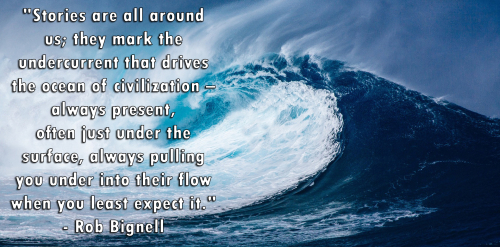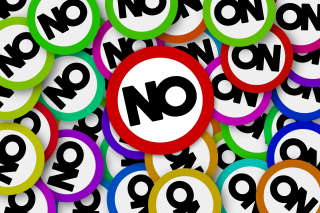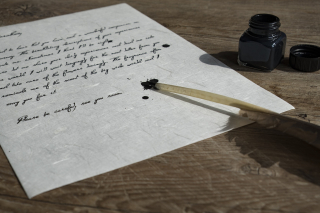Rob Bignell's Blog, page 212
June 12, 2018
How to establish setting in your story���s opening
Setting is  the place and time in which the plot unfolds. The setting always must be established in a story���s opening lines.
the place and time in which the plot unfolds. The setting always must be established in a story���s opening lines.
A setting helps anchor the story. That���s because the conflicts the characters face hinge on where and when they are, which creates situations for the characters. After all, certain events and solutions simply cannot occur in various historical periods or locations. Further, if the setting is not given, readers almost always will think that the time of the story is contemporary ��� and if your story is not set in the early 21st century, then your reader will be disoriented when on page 2 you mention slaves in the Agora or talk about hopping a hyperdrive to Tau Ceti.
The setting need not be overtly stated. In fact, writers are best to infer the story���s place and time. Consider the following opening lines:
The valley below them stretched deep and black. On the ridge above was only scrub and rock with a stout, teetering stone wall at the edge. The sun rising behind the ridge had just begun to warm the wall and lift the shadows from the valley. The Californian and the girl with him sat on the wall where it remained upright, where rain and wind had yet to erode the granite at the ridge���s edge. In a half-hour, light would fully wash the dark from the valley, allowing the small river running through it to be seen.
���Want a cigarette?��� the girl asked. She opened her macram�� satchel that sat between them.
The Californian fished a lighter from his pocket. ���Sure.���
From these opening lines, we know that the story���s setting is a ridge overlooking a river valley at sunrise or shortly after dawn. The description of the ridge being made of granite suggests this is a mountain ridge, as granite primarily appears in mountainous areas. The lack of details indicating that the weather is cold (seeing their breath, fumbling as getting the cigarettes and lighter with their gloves on) suggests that the season is summer, though maybe late spring or early autumn.
The reader doesn���t need to know the state or province where the ridge is located or even the name of the ridge or of the mountains. Exactly what day of the week it is or even the specific month is irrelevant. All that matters are the specific details of the place and time that directly affect the characters.
Given this, when describing the setting in your opening lines, follow these two rules:
��� Tell how your main characters perceive this place ��� Specifically state what the characters can see, hear, smell, taste or touch to infer the place and time. Have readers experience the setting just as the characters would.
��� Provide concrete details of the place ��� When offering what the characters experience in their setting, give specific, exact descriptions. In the above example, the valley is not vaguely described as ���mysterious��� but instead is dark, deep and covered by shadow.
Particularly in short stories, avoid long descriptions to establish the setting, as this can delay the introduction of the protagonist and the story���s central problem. If you must include lengthy descriptions, consider dividing your paragraph into three ���sections���; for example, start with the foreground, then in the next couple of sentences go the middle, and at paragraph���s end to the background, or try left-center-right or sky-eye level-ground.
The location of your story should complement the plot and characters. When selecting where you will set your story, make it more than a backdrop for your tale.
You can accomplish this by ensuring your setting:
��� Offers opportunities for your character to have conflicts ��� If a character is experiencing a man vs. nature or a man vs. himself conflict, then being marooned on an island is a great setting. That location probably won���t work for a man vs. society conflict, however. But think even deeper than that. Ask yourself where would the conflict and the narrative arc your main character goes through best be expressed? Suppose, for example, that your protagonist, now retired, decides to move back to the place of his childhood and renovate an old residence that nature is quickly reclaiming. A good setting for this would be a forested area that is really far out in the boondocks, the complete opposite of a large, cultured city where he has lived his entire adult life.
��� Delivers a place where such conflicts naturally could occur ��� Don���t force a setting to fit the plot. Two ambitious corporate attorneys, for example, wouldn���t work in a small town but instead in a big city downtown high rise. Their environs are the restaurants, offices and penthouses of their corporate clients. If the attorneys live and work in a small town, this would undercut the story���s believability.
��� Provides plenty of space for lots of action to occur ��� If your main character needs to grapple with kidnappers inside a building, make it a large skyscraper or a massive warehouse where there���s space for the action unfold. A seaside village doesn���t allow a lot of space for a sophisticated spy to battle a criminal organization throughout a novel, though it would work fine in a chapter or scene.
��� Feels like a real place to readers ��� A setting obviously can be made-up but ought to feel like it actually could exist. That means appealing to the reader���s five senses in your description and then including parallels to something similar readers are familiar with (which is why so many science fiction novels structure spacecraft operations of the future like those of today���s naval vessels). If using a real place, always do your research so that you don���t include factual errors and so that you can provide evocative details to capture the location���s feel.
��� Improves the story���s quality via the feeling or tone of the setting ��� The seedy side of a city at night is perfect for a dark, gritty story. A swamp works well for a horror story. That���s because the emotions the setting evokes matches the story���s tone. If you���re successful at this, you probably will create an interesting and memorable setting.
Professional Book Editor: Having your novel, short story or nonfiction manuscript proofread or edited before submitting it can prove invaluable. In an economic climate where you face heavy competition, your writing needs a second eye to give you the edge. I can provide that second eye.
<A HREF=���http://ws-na.amazon-adsystem.com/widg... Widgets</A>
Related articles
 Five Great Quotations about the Writing Process
Five Great Quotations about the Writing Process Writing Inspiration: Seek another's advice
Writing Inspiration: Seek another's advice Make tables readable in your self-published book
Make tables readable in your self-published book
June 11, 2018
Build your book into a business
Rarely can  an author make a living solely from book sales. However, authors can achieve their dream of independence by building a business around their books.
an author make a living solely from book sales. However, authors can achieve their dream of independence by building a business around their books.
Creating a business centered on your published works largely means monetizing your expertise. For example, you could deliver a service or provide products related to your book. You might sell attendance at workshops, online courses, teleseminars and webinars or videos that you offer about your book���s topic.
People always want and are willing to pay for expert advice. Writing a book on a topic ��� presuming you seriously researched it ��� makes you an expert. So long as your writing develops reader trust and likability, this expert status allows you to use your books as a springboard for selling related services and products.
Once you���ve published a book, ask yourself how you might sell services or products based on your title���s subject. If you���ve published a book on canoeing or kayaking, for example, you might offer outfitting services. If you���ve written about personal finance, offering investment consulting services makes sense.
To get business for your service, become a public speaker and offer workshops, classes, teleseminars and webinars about the topic. The fact that you���ve written a book makes you an expert who can give such presentations, which in turn creates opportunities to pitch your book. Such events also can help you leverage media appearances. Ultimately, however, the presentations and your books aim to generate personal services ��� like the aforementioned outfitter or investment consultant ��� that pay far more dollars to you than public appearances or Amazon.com royalties.
Many products beyond books also can be sold. For example, if a nutritionist or a dietician, you might create food products that follow your recommended meal plans. Or you might simply offer coffee mugs and T-shirts with your brand name on them.
Building a business around your book does mean you that you���ll spend less time writing. In fact, you���ll need to keep penning and publishing new books related to your business; the outfitter, for example, might pen kayaking river guides, while the personal finance author might knock out books about niche topics, such as investing in the stock market or how to save for your kid���s college education.
Your writing, presentations and services always benefit one another. After all, experts who offer services and products sell more books. As people learn about your services and products, visits to your website and attendance at your presentations will rise, generating more awareness of and interest in your books and services. More book sales in turn means more business and people attending your events. So long as your books and presentations help people to at least partially solve their problem, they will seek you out to meet additional, related problems that they experience.
Even better, as you provide more people with products or a service that they need, you develop ideas for new books, while high sales of particular titles you���ve written can help shift the direction of your business to areas that are more lucrative.
Admittedly, building a business based on your book does more readily lend itself to nonfiction authors. Writers who���ve published multiple books on the same topic or in the same genre also will find their efforts easier going. However, many novelists and authors of a lone title with a little creativity have successfully built a business around their book, usually in the fields of coaching other writers or manuscript editing.
Professional Book Editor: Having your novel, short story or nonfiction manuscript proofread or edited before submitting it can prove invaluable. In an economic climate where you face heavy competition, your writing needs a second eye to give you the edge. I can provide that second eye.
<A HREF=���http://ws-na.amazon-adsystem.com/widg... Widgets</A>
Related articles
 Five Great Quotations about the Writing Process
Five Great Quotations about the Writing Process Writing Inspiration: Seek another's advice
Writing Inspiration: Seek another's advice Make tables readable in your self-published book
Make tables readable in your self-published book
June 10, 2018
5 Great Quotations about ���Good Writing���
���Major  writing is to say what has been seen, so that it need never be said again.��� - Delmore Schwartz
writing is to say what has been seen, so that it need never be said again.��� - Delmore Schwartz
���A good story cannot be devised; it has to be distilled.��� - Raymond Chandler
���Good writing is remembering detail. Most people want to forget. Don���t forget things that were painful or embarrassing or silly. Turn them into a story that tells the truth.��� - Paula Danziger
���The glory of a good tale is that it���s limitless and fluid...��� - Stephen King
���In good writing, words become one with things.��� - Ralph Waldo Emerson
Professional Book Editor: Having your novel, short story or nonfiction manuscript proofread or edited before submitting it can prove invaluable. In an economic climate where you face heavy competition, your writing needs a second eye to give you the edge. I can provide that second eye.
Amazon.com Widgets
June 9, 2018
Every success story begins with a dream. If you dream of...

Every success story begins with a dream. If you dream of being a professional, published author, that success story requires believing in yourself and in knowing that your efforts will lead to triumph. Read the motivational blog entry this quotation came from by clicking on the quote card.
Professional Book Editor: Having your novel, short story or nonfiction manuscript proofread or edited before submitting it can prove invaluable. In an economic climate where you face heavy competition, your writing needs a second eye to give you the edge. I can provide that second eye.
&amp;lt;A HREF=���http://ws-na.amazon-adsystem.com/widg... Widgets&amp;lt;/A&amp;gt;
Related articles
 Five Great Quotations about the Writing Process
Five Great Quotations about the Writing Process Writing Inspiration: Seek another's advice
Writing Inspiration: Seek another's advice Make tables readable in your self-published book
Make tables readable in your self-published book Nurture Your Books runs interview of me - Inventing Reality Editing Service
Nurture Your Books runs interview of me - Inventing Reality Editing Service 5 Free Creative Writing Prompts: Science Fiction - Inventing Reality Editing Service
5 Free Creative Writing Prompts: Science Fiction - Inventing Reality Editing Service
June 8, 2018
How to Market Your Book: 7 Minutes a Day to Promoting Yo...

How to Market Your Book: 7 Minutes a Day to Promoting Your Book shows how to develop a strategy that will get articles about your self-published book in newspapers, magazines, on radio and television programs, posted on blogs, and linked to on websites, while landing you book signings and readings, all at virtually no cost.
&amp;lt;A HREF=���http://ws-na.amazon-adsystem.com/widg... Widgets&amp;lt;/A&amp;gt;
Related articles
 Writing Inspiration: Who are you?
Writing Inspiration: Who are you? Writing Inspiration: Seek another's advice
Writing Inspiration: Seek another's advice Five Great Quotations about the Writing Process
Five Great Quotations about the Writing Process Make tables readable in your self-published book
Make tables readable in your self-published book Four ways to write a great tweet that sells books
Four ways to write a great tweet that sells books
June 7, 2018
8 Blogging Tips and Strategies for Authors

��� Promote your book by blogging about it
��� What authors can write for blog entries
��� How often should you blog?
��� Use Google's Keyword tool to sell more books
��� Hosting guest bloggers
��� Promote your book by guest blogging
��� Organize blog tour to promote your book
��� Increase book sales by selling blog on Kindle
��� BONUS: "You can, you should, and if you're brave enough to start, you will." - Stephen King
Professional Book Editor: Having your novel, short story or nonfiction manuscript proofread or edited before submitting it can prove invaluable. In an economic climate where you face heavy competition, your writing needs a second eye to give you the edge. I can provide that second eye.
<A HREF=���http://ws-na.amazon-adsystem.com/widg... Widgets</A>
Related articles
 Five Great Quotations about the Writing Process
Five Great Quotations about the Writing Process Writing Inspiration: Seek another's advice
Writing Inspiration: Seek another's advice Make tables readable in your self-published book
Make tables readable in your self-published book
June 6, 2018
Which is correct? Make Do vs. Make Due
If you use  make due rather than make do in your writing, you might be giving yourself away as a reader of Victorian or early 20th century American novels.
make due rather than make do in your writing, you might be giving yourself away as a reader of Victorian or early 20th century American novels.
Make do means to ���persevere through difficult times,��� as in When dad lost his job, mom said, ���We���ll just have to make due with just my income for a bit.������
Make due is considered a misspelling of make do. A perfect demonstration of how language evolves, make due actually was the preferred spelling until the 1940s. If you want to use this spelling in a letter or diary entry that a character in a historical novel set between 1800-1949, then you���re okay.
In the 21st century, though, make do is the way to go in your writing.
Professional Book Editor: Having your novel, short story or nonfiction manuscript proofread or edited before submitting it can prove invaluable. In an economic climate where you face heavy competition, your writing needs a second eye to give you the edge. I can provide that second eye.
<A HREF=���http://ws-na.amazon-adsystem.com/widg... Widgets</A>
Related articles
 Five Great Quotations about the Writing Process
Five Great Quotations about the Writing Process Writing Inspiration: Seek another's advice
Writing Inspiration: Seek another's advice Make tables readable in your self-published book
Make tables readable in your self-published book
June 5, 2018
How to introduce your story���s protagonist
Among the  many musts of a story���s opening page is introducing the protagonist. This ���greeting��� should provide just enough information that the reader feels the protagonist is interesting to follow. Since you have only a few lines to do this in, what to leave in and leave out presents a challenge.
many musts of a story���s opening page is introducing the protagonist. This ���greeting��� should provide just enough information that the reader feels the protagonist is interesting to follow. Since you have only a few lines to do this in, what to leave in and leave out presents a challenge.
Generally, the reader must know a couple of basics about the protagonist ��� the character���s name and gender. A name helps readers identify and set in their minds who is the protagonist to be followed. The gender delivers a variety of cultural information that readers carry with them through the story; indeed, needing to know the gender of a person may be instinctive for the various evolutionary benefits such knowledge provides.
The name is easy enough to slip in; simply make sure it���s the subject of a sentence that shows the protagonist doing something. Usually the name infers a gender, but if it doesn���t ��� as is the case with names that both genders use (such as ���Pat���) or science fiction/fantasy/historical names that aren���t common in our times (Is ���Acacius��� a male or a female name?), simply use a pronoun referring to your protagonist.
Much more difficult but just as vital is ensuring that you include clear evidence that the protagonist is someone the reader can like and preferably identify with. The primary way to make main characters sympathetic is by presenting them on the bad end of a situation with which the reader can identify with. For example, the protagonist has plans for the evening, but a parent or boss forces her to give them up for some chore or overtime. Or the main character is mocked for being a dreamer. Or he is told help won���t be coming soon, requiring him to make due with what he has. All readers have been in situations just like or very similar to these. Except for those with cold hearts, readers will emotionally relate to the protagonist���s dilemma.
You also must provide the character���s goal. Your protagonist needs to have some need, desire or wish that becomes his goal in the story. This desire ought to arise from the way the character is made sympathetic to readers ��� it might be the freedom to make his own choices...or to be accepted...or to survive. The goal need not be directly stated; in fact it���s better if it���s inferred through the character���s physical gestures and actions. The character in the last paragraph���s examples who learned no emergency help is coming anytime soon might sigh in resignation and then immediately set about gathering the essentials needed to live, such as taking stock of his supplies, searching for what he���s low on (food), and constructing a temporary shelter to get through the night.
One other piece of info that���s useful to include is an unusual physical trait that suggests a personality trait or a backstory: the birthmark that a beautiful woman believes makes her ugly; the eyepatch on a man who is extremely angry; the missing finger on a man who eschews violence. Each of these raise interest in the character and help establish his or her uniqueness.
There���s also a lot not to tell about the protagonist in the opening lines. Presuming it���s irrelevant to the story���s plot, leave out:
��� Lengthy descriptions of the character���s appearance ��� Most readers don���t care if the character has curly blonde hair and blue eyes. Often such descriptions don���t add anything to characters other than show how the author envisioned them as writing the story.
��� Background information about his past life ��� Only the most vital of facts and experiences need to be inferred or weaved into dialogue later in the story. Most backstory is unimportant to the development of the character or the story that has to be told.
��� Extensive musing in which the character is all alone ��� Sometimes called a Robinson Crusoe opening, such openings place a character in a car, on an airplane, waking up, jogging, gazing in a mirror, etc. They are clich��.
��� Mary Sue character-type traits ��� A Mary Sue is a character who���s too perfect to be true, like being the object of every other characters��� affection or someone who never makes a mistake. This idealized person comes off as phony and usually only works as a starting point for a comedy.
��� Flashbacks ��� Avoid introducing a protagonist by showing him in the middle of a flashback. This actually undercuts the point of the literary technique, which is to provide key information that helps readers understand the character���s decisions at that point in the story.
Professional Book Editor: Having your novel, short story or nonfiction manuscript proofread or edited before submitting it can prove invaluable. In an economic climate where you face heavy competition, your writing needs a second eye to give you the edge. I can provide that second eye.
<A HREF=���http://ws-na.amazon-adsystem.com/widg... Widgets</A>
Related articles
 Five Great Quotations about the Writing Process
Five Great Quotations about the Writing Process Writing Inspiration: Seek another's advice
Writing Inspiration: Seek another's advice Make tables readable in your self-published book
Make tables readable in your self-published book
June 4, 2018
6 Editing Tips for Tightening Your Writing

��� Use active voice
��� Cut begin fallacy
��� Work off fat from overwritten descriptions
��� Delete redundancies
��� Avoid pushbutton words
��� Dump fuzzy words
��� BONUS: ���Words are the most powerful drug used by mankind.��� ��� Rudyard Kipling
Professional Book Editor: Having your novel, short story or nonfiction manuscript proofread or edited before submitting it can prove invaluable. In an economic climate where you face heavy competition, your writing needs a second eye to give you the edge. I can provide that second eye.
&amp;amp;amp;lt;A HREF=���http://ws-na.amazon-adsystem.com/widg... Widgets&amp;amp;amp;lt;/A&amp;amp;amp;gt;
Related articles
 Five Great Quotations about the Writing Process
Five Great Quotations about the Writing Process To write, I quash the perfectionist impulse - Inventing Reality Editing Service
To write, I quash the perfectionist impulse - Inventing Reality Editing Service 5 Writing Prompts for Science Fiction Writers - Inventing Reality Editing Service
5 Writing Prompts for Science Fiction Writers - Inventing Reality Editing Service 5 Ways to Create a Killer Opening Page - Inventing Reality Editing Service
5 Ways to Create a Killer Opening Page - Inventing Reality Editing Service Editing client publishes her first novel - Inventing Reality Editing Service
Editing client publishes her first novel - Inventing Reality Editing Service
June 3, 2018
5 Great Quotations about Books
���Books have  to be heavy because the whole world���s inside them.��� - Cornelia Funke
to be heavy because the whole world���s inside them.��� - Cornelia Funke
���I love the smell of book ink in the morning.��� - Umberto Eco
���Nothing is more human than a book.��� - Marilynne Robinson
���A life without books is a thirsty life, and one without poetry is���like a life without pictures.��� - Stephen King
���A book is a dream that you hold in your hand.��� - Neil Gaiman
Professional Book Editor: Having your novel, short story or nonfiction manuscript proofread or edited before submitting it can prove invaluable. In an economic climate where you face heavy competition, your writing needs a second eye to give you the edge. I can provide that second eye.
<A HREF=���http://ws-na.amazon-adsystem.com/widg... Widgets</A>
Related articles
 Five Great Quotations about the Writing Process
Five Great Quotations about the Writing Process Writing Inspiration: Seek another's advice
Writing Inspiration: Seek another's advice Make tables readable in your self-published book
Make tables readable in your self-published book



